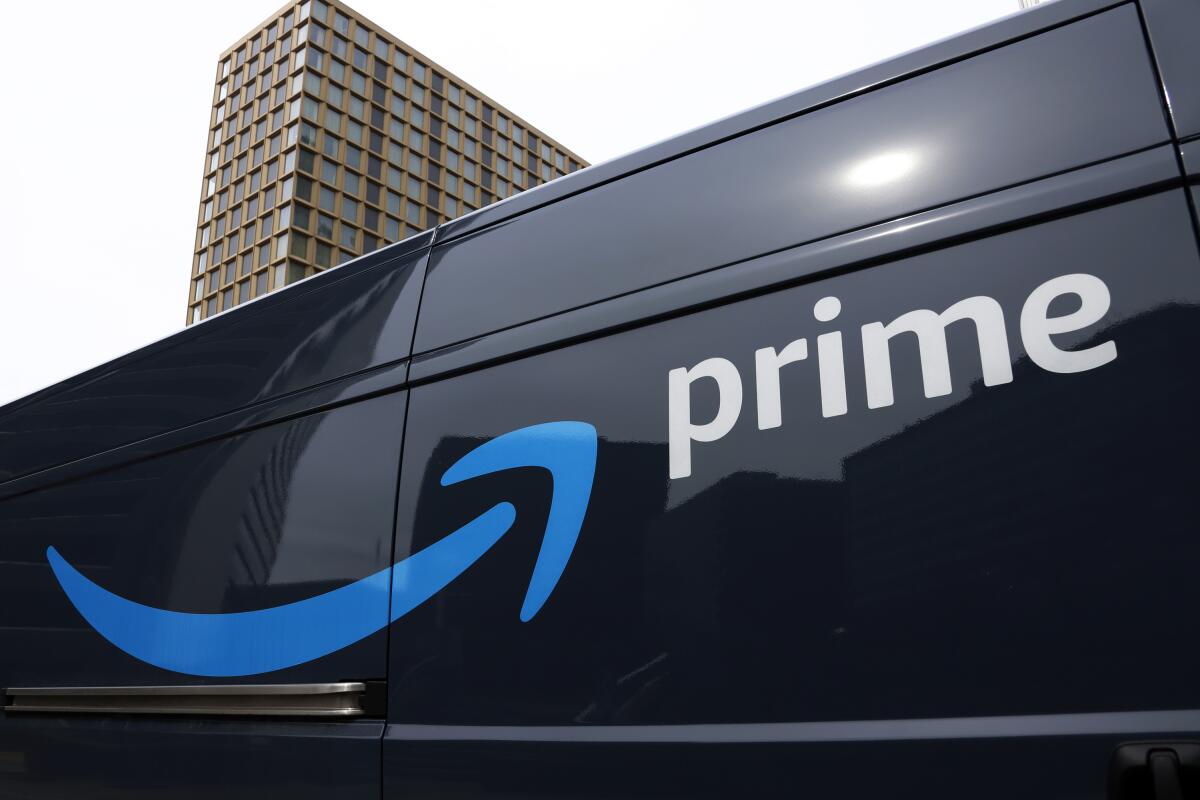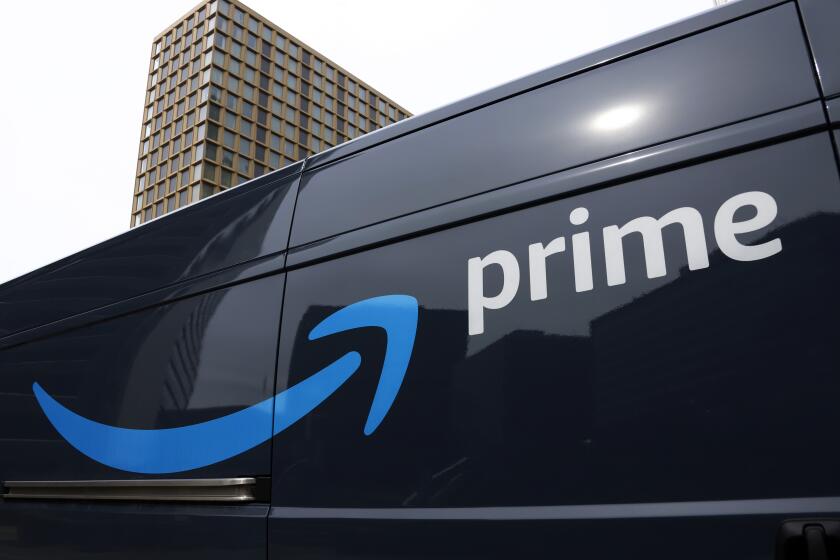Amazon executives accused by FTC of helping deceive Prime users

- Share via
Three Amazon.com executives were accused by the Federal Trade Commission of participating in an alleged plan to make it difficult for customers to cancel subscriptions to the company’s Prime membership service.
Senior Vice Presidents Neil Lindsay and Russell Grandinetti, along with Vice President Jamil Ghani, were added as defendants Wednesday in a lawsuit the FTC filed against Amazon in June. The regulator said they helped orchestrate the plan and ignored pleas by employees to stop using techniques “to mislead or trick users” into “signing up for a recurring bill.”
Lindsay oversaw the membership program, Grandinetti handled the international consumer business, and Ghani was responsible for Prime’s subscription program, according to the filing. The FTC cited internal memos at Amazon going back to 2017 discussing concern that enrollment wasn’t designed to be easy for customers to cancel.
“An unknown $12.99 charge could mean grocery money for a family, gas to fill up a car, or just the last bit of money to make rent,” one Amazon employee, whose name was redacted in the Wednesday filing, wrote to Ghani in 2020. “Do we think that they should also [have] to call customer service to ask for a refund, when they discover this unknown charge [for Prime]?”
In its June lawsuit, the FTC alleged Amazon duped consumers into signing up for Prime and deliberately made it hard to cancel.
Amazon duped customers into signing up for Prime and deliberately made it hard to cancel, the FTC says in a lawsuit.
Lindsay, Grandinetti and Ghani declined to comment, but an Amazon spokesman said adding them to the lawsuit was unwarranted.
“These leaders have worked tirelessly to make Prime an exceptional program that customers love, and they have our full support,” Amazon spokesman Tim Doyle said in an email. “To claim that their efforts were made in anything but the utmost good faith is unfounded and represents a radical departure from the FTC’s own standards for such claims. We’ve always made it clear and simple for customers to sign up for and cancel Prime, and we look forward to demonstrating that the FTC’s claims to the contrary are wrong.”
Prime membership has been a key differentiator for Amazon, helping it convert occasional shoppers into loyal devotees who make the company their default choice when shopping online. Walmart, Amazon’s biggest competitor, launched the Walmart+ subscription in 2020 for $98 a year, offering many of the same benefits. Amazon Prime costs $139 annually or $15 a month.
Confusion and difficulty around canceling Prime membership was the subject of multiple internal memos, approved by Lindsay, including one that expressed concern that suddenly simplifying the cancellation process would hurt Amazon’s business, according to the FTC.
“Based on results from our experiments, we believe tightening clarity at a single transaction at signup is not the right approach and that such highly impactful changes to the [customer experience] should not be introduced abruptly given the shock to business performance,” according to an internal memo approved by Lindsay that was included in the lawsuit.
Lindsay also said he didn’t mind the perceived design flaws in the Prime subscription process because customers wouldn’t want to cancel once they discover the value of Prime, according to the FTC.
Amazon made some changes in 2021 in response to regulatory pressure from the FTC and the European Union, but executives sought to minimize the impact on the business, according to the suit.
In a note to Ghani, Lindsay wrote, “given how hot this topic is in the press lately, and the risk of regulatory action in some countries, I [am] wondering how you might thread the needle ... between making it easy to join, easy not to mistakenly join and not unduly difficult to unsubscribe,” according to the complaint.







